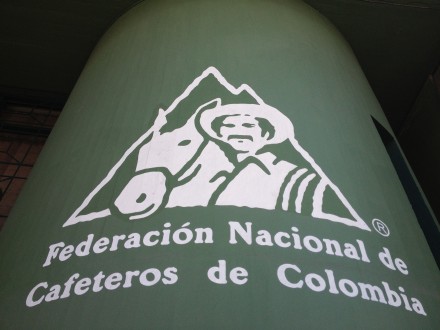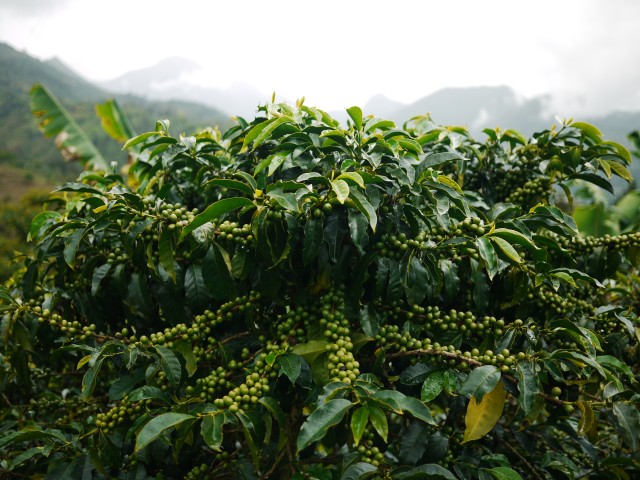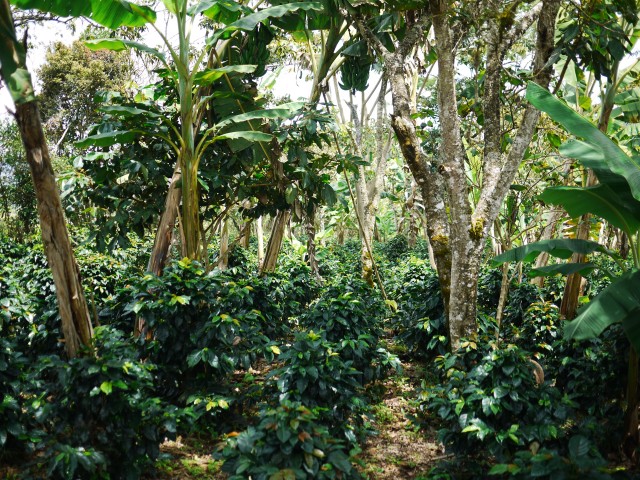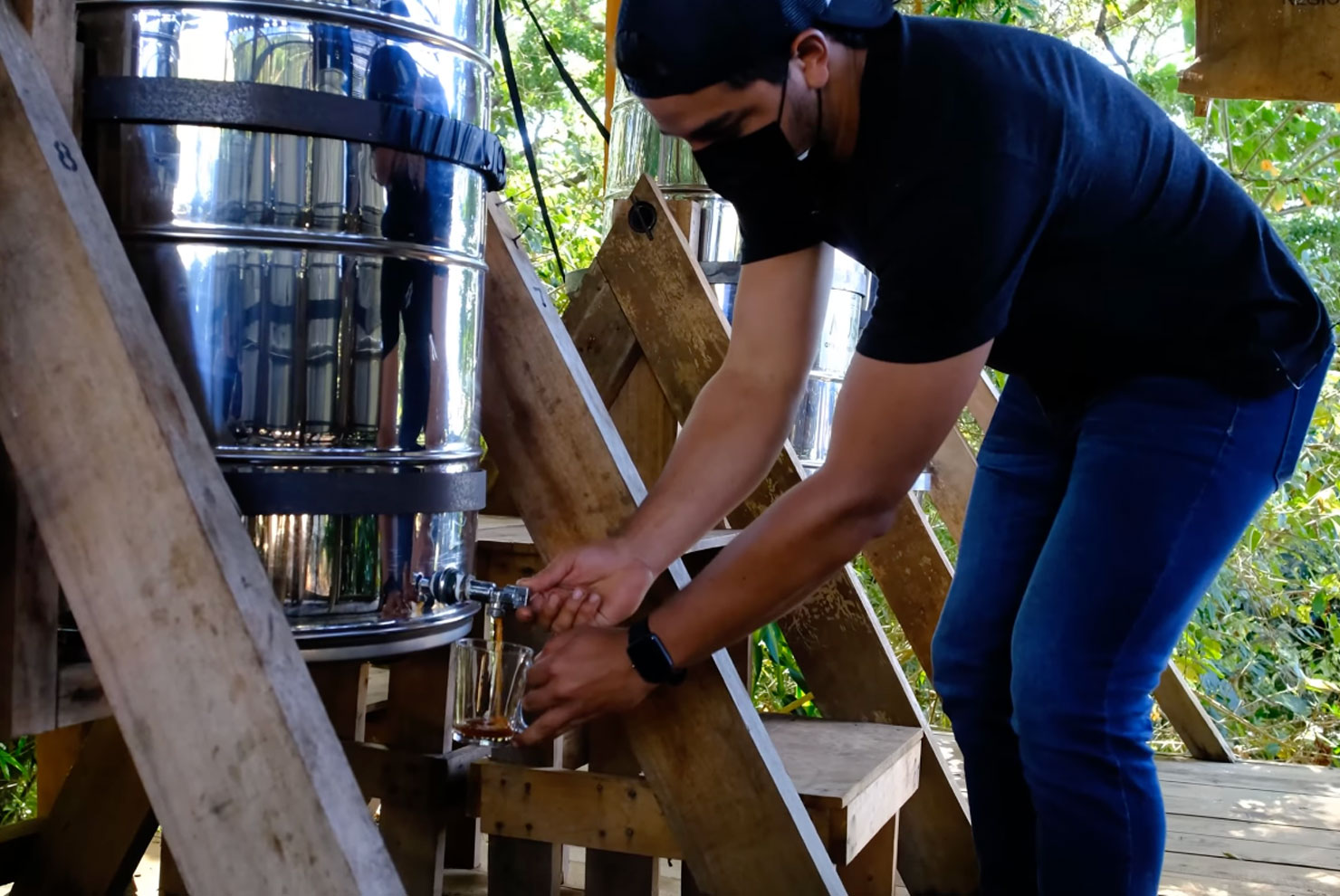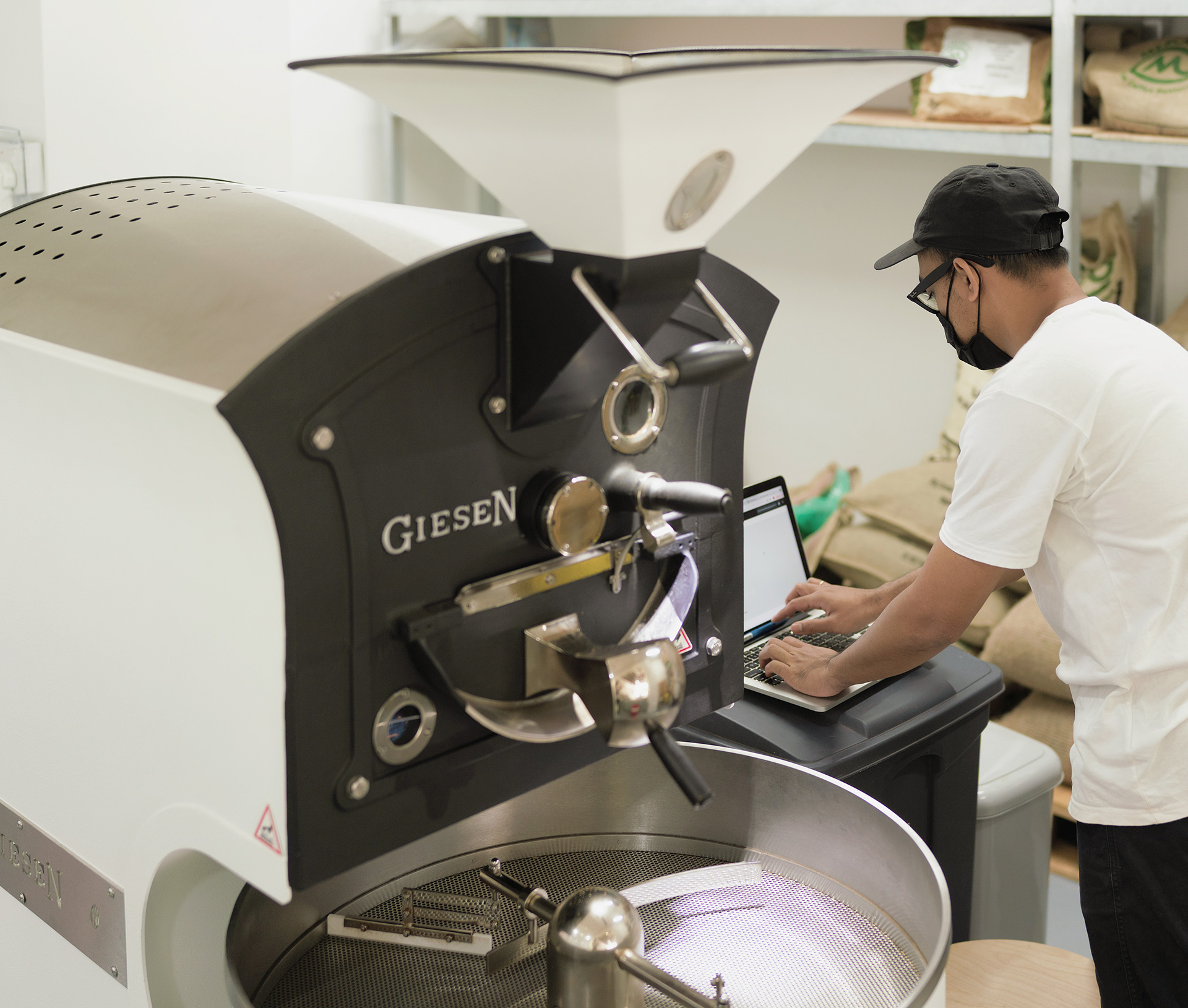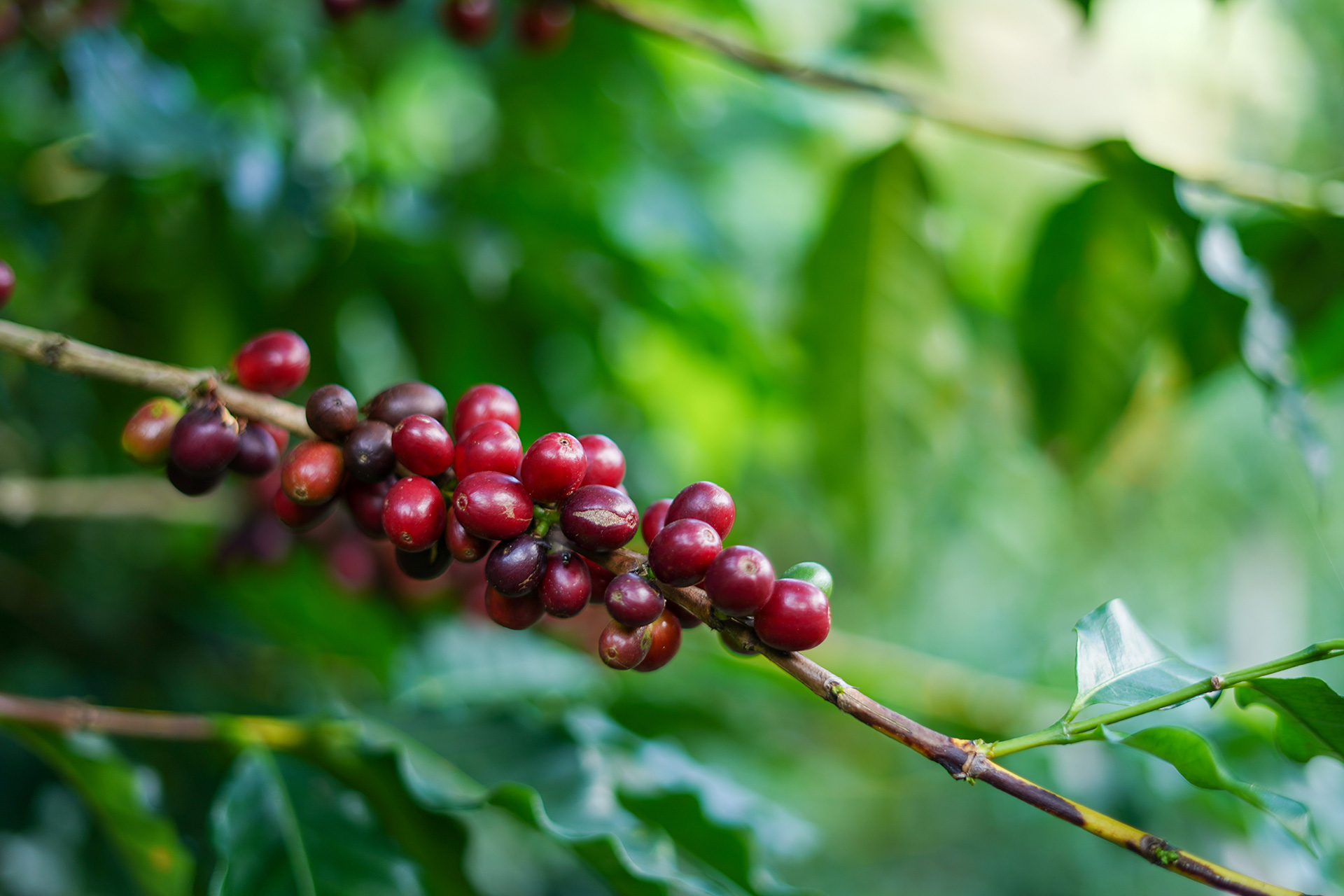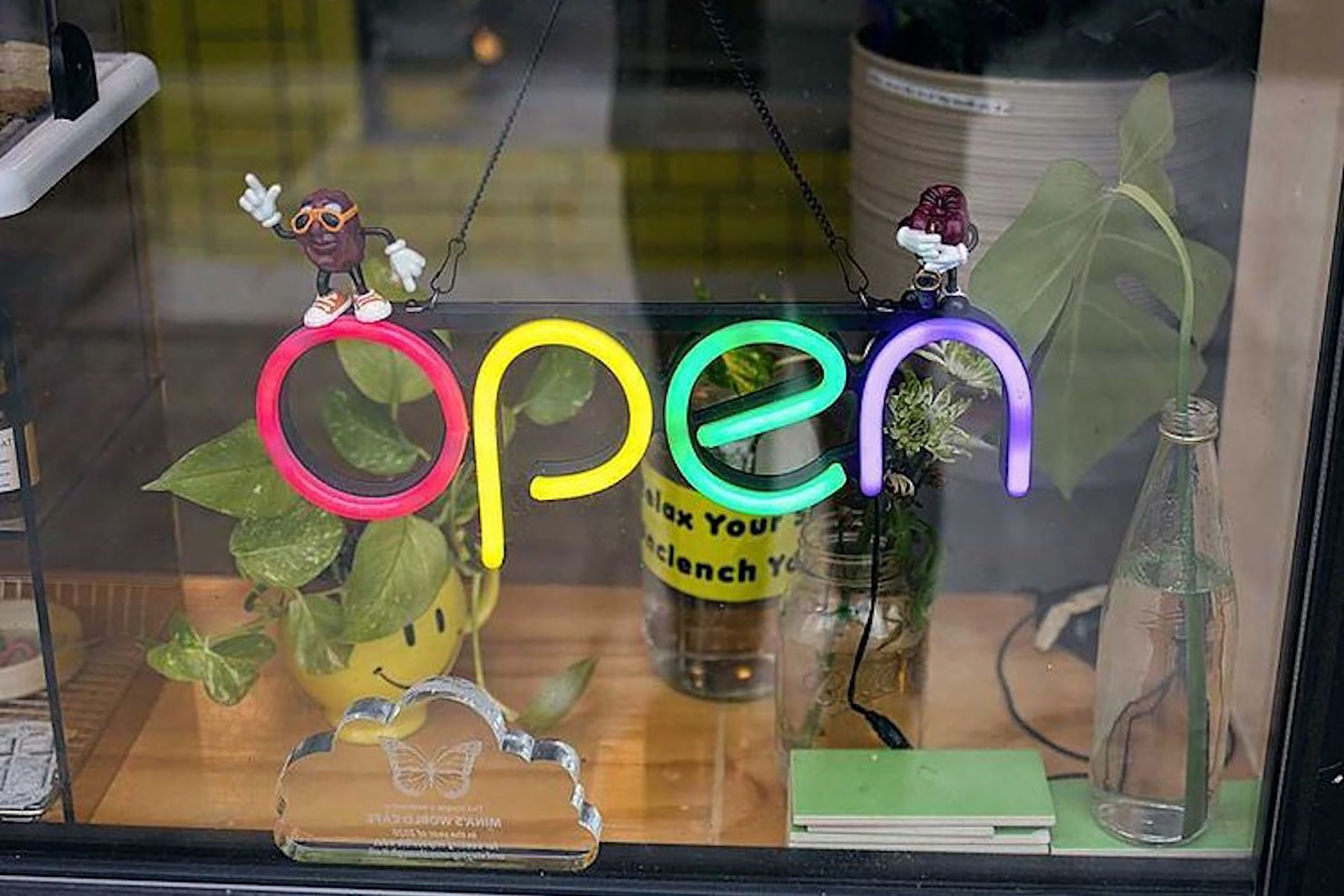For more than two weeks, coffee growers in Colombia have participated in a nationwide strike that has roiled the country. Mass mobilizations and blockades of major highways have caused economic losses and shortages of food and fuel in 25 of its 32 departments. Riots in the capital Bogota left four protesters dead, dozens of police injured and hundreds arrested. The government called out the Army to restore order.
When Colombia’s coffee farmers staged a strike earlier this year, the specialty coffee community followed the action closely. This time around, it seems to have barely noticed.
That may be because the images dominating the coverage are not of coffee growers blocking mountain passes high in the Andes, but of young people clashing with riot police on city streets. But the current strike is a direct extension of the previous one. Representatives of the coffee sector are pressing issues that are vital for the viability of coffee farming over the short-term, including extension of subsidies, price controls for agrochemicals and restructuring of farmer debt. The longer-term implications of the strikes are no less important to the future of Colombian coffee, but decidedly messier — they are entwined in the politics of institutional reform within Colombia’s coffee sector.
From the Paro Cafetero to the Paro Nacional
Back in February, the Movement for the Dignity of Colombian Coffee Growers staged a nationwide coffee strike. Dignidad Cafetera is a social movement that claims to represent Colombia’s coffee growers. It is a fierce critic of the country’s official coffee institutions. In March, the paro cafetero it organized won important concessions from the government, including more than $400 million in subsidies for farmers reeling from a combination of low prices and unfavorable exchange rates.
Less than three months later, Dignidad Cafetera charged that the government was not making good on its commitments. In early June, it published a manifesto laying out its grievances and convening a second strike for 19 August. This time, it broadened the invitation to resistance, inviting other sectors of Colombia’s agricultural economy to join a paro agrario. Critics of the country’s agriculture policy argue that Colombia’s government has created a crisis in the countryside by signing free trade agreements that expose Colombian farmers to global competition without making the investments and policy adjustments necessary for them to compete effectively.
The call to arms echoed broadly, and the protest was joined not just by potato farmers and wheat farmers and dairy farmers, but also by miners and labor unions and indigenous movements and students and other groups, each of which generated its own demands. The result is the paro nacional, a collection of narrower strikes, including the paro cafetero, the paro agrario, the paro minero and others. In cities all over the country, and in a number of foreign countries, thousands have taken to the streets to express their solidarity, banging pots and pans and urging Colombia’s government to address the demands issued by the strike. While the coffee strike may be obscured in the broader current of revolt in Colombia, coffee growers continue to be at the center of the protest and continue to press issues critical to the profitability of the country’s coffee growers.
The issues.
Subsidies – When the government agreed to commit more than $400 million in subsidies for coffee farmers, its Finance Minister said the initiative was without precedent “in the history of coffee.” He also made clear that the extraordinary measure designed to avoid widespread suffering in Colombia’s coffeelands was temporary: the funds pledged by the government would run only through the end of 2013.
Now the organizers of the coffee strike claim that many coffee growers have not been able to access the subsidies, while others have been only partially compensated. Rumors of fraud are widespread. Dignidad Cafetera is calling for improvements in the administration of the funds and an extension of the subsidies into 2014.
Agricultural inputs – Colombia imposes steep taxes on agrochemical imports, driving up prices for fertilizers, fungicides and pesticides by as much as 50 percent. As part of the agreement to end the first strike in March, a committee was set up to continue to further explore the issue. Late last week, the government announced the temporary elimination of tariffs on 23 agrochemical products.
Credit – The first strike appeared to win an important concession from Banco Agrario, the state-owned bank that finances Colombia’s coffee renovation program and delivers other financial services to the country’s coffee growers. The agreement reached in March called for a one-year grace period for all current debt held by the country’s coffee farmers and a restructuring of that debt over four years. Another committee was created to work out the details of this arrangement. According to strike leaders, loans have been restructured in ways that are not giving growers the relief they need.
Last week, President Juan Manuel Santos acknowledged that the country’s agriculture sector is mired in a deep structural crisis from which it will not emerge quickly or easily. He called for a “national pact” to make Colombian agriculture thrive again, and invited representatives of striking farmer groups to work with his government to begin the process later this month. As of this writing, the strike continues and coffee sector representatives remain locked in negotiations with the government around these and other issues. And all this is happening against the backdrop of an ongoing initiative to reform the country’s coffee institutions.
The politics of institutional reform.
Colombia’s National Coffee Growers Federation has advanced the interests of the country’s coffee growers since 1927. The Federation is the country’s largest coffee exporter; its operations are funded by a tax on coffee exports and its own export earnings. With these resources, it delivers agronomic and financial and commercial services to more than a half-million coffee growers. Its world-class research institute CENICAFE is leading innovations in coffee breeding and processing. It guarantees to purchase coffee from all Colombia’s coffee farmers, whether they are members of not, stabilizing prices and ensuring a high percentage of the coffee’s export prices reaches farmers. It is the intellectual author of the legendary Juan Valdez ad campaign and has made Colombia synonymous with quality for most of the world’s coffee drinkers. It has built roads and schools and hospitals in the coffeelands. It is an essential part of the country’s identity and popular culture, featured in Café con Aroma de Mujer, one of the most successful telenovelas in Latin America’s history, and a popular tongue-in-cheek book citing Juan Valdez and the Federation as evidence that “God is Colombian.” At the height of its powers, the Federación owned an airline. And a bank. And a shipping company. And financial corporations. And real estate. Although coffee’s importance to Colombia’s national economy declined steadily since the Federation was established, when it represented around 80 percent of Colombia’s exports, the Federation retained power, influence and prestige.
But because the Federation has taken such good care of Colombia’s coffee growers, it is also the most popular target of popular discontent when things go wrong. And things went terribly wrong in 2001 when world coffee prices collapsed. Coffee growers turned to the Federation for support and also began to look more critically at its performance. In the wake of the coffee price crisis, Colombia’s government appointed a high-level commission—la Comisión para el Ajuste de la Institucionalidad Cafetera—to conduct a thorough review of the country’s coffee institutions and recommend measures to make those institutions more effective and Colombia’s coffee sector more competitive.
The Commission’s mandate focused on the Federation and its financial arm, the Fondo Nacional de Café. Its final report, El Café, Capital Social Estratégico, is not just enlightening—it is also a great read. Its authors acknowledge the enormous benefits Colombia’s coffee institutions have generated for the country’s farmers, then level withering critique of their structure and management, advancing a series of sound recommendations for reforms to make them more transparent, efficient and competitive.
(The report, available only in Spanish, is long, but the 15-page Executive Summary ably summarizes its key points. For English-only readers, there is Daniele Giovannucci’s outstanding Colombia Coffee Sector Study, also published in 2002, which incorporates the key points of the Commission’s review and recommendations in a broader analysis. It was written in 2002, but much of its analysis resonates today. A must-read for anyone who wants a deeper understanding of Colombia’s coffee sector.)
Over the past decade, the Commission’s report has been in many ways a strategic roadmap for Colombia’s coffee institutions, which have incorporated some of its specific recommendations. The most visible of these was undoubtedly the emergence and global expansion of the Juan Valdez Café chain. But much of the work prescribed by the Commission remains unfinished, a detail not lost on the organizers of this year’s coffee strikes.
There are different perspectives on the push for institutional reform by critics like Dignidad Cafetera. A sympathetic view casts the leaders of the strike as reformers determined to see through the unfinished business of the reforms proposed more than a decade ago. Another, less charitable view sees the leaders of the paro cafetero, painting them as opportunists in a struggle for power over the country’s coffee sector.
President Santos told reporters last month that some of the leaders of the strike are using the protest to try to abolish the Federation altogether. He will not allow that to happen. But he has also been a steady advocate of reform.
As Minister of Finance in 2002, President Santos signed the prologue to the Commission’s final report, endorsing its findings and recommendations and echoing its calls for reform.
More recently, he opened the 66th National Coffee Growers Congress in November 2011, calling for a “general reengineering” of the Federation.
In mid-2012, he returned to the theme of institutional reform during celebrations of the Federation’s 85th anniversary: “I have always been a great champion of the country’s coffee institutions…But every institution, in order to be relevant and be strong, has to have a kind of continuous improvement, to ask itself every day: Are we doing things well? How could we do them better?”
By the time President Santos addressed the 67th Congress, he was more pointed: “I would like to insist on the formation of a new commission of experts to…study the critical issues that affect the [coffee] sector today.”
In Februrary, his government formed another high-level Commission—the Comisión para el Estudio de la Política y la Institucionalidad Cafetera—and appointed Juan José Echavarría to lead it, an economist with sterling credentials (he studied at Oxford and has served as a director of Colombia’s central bank) and knowledge of the country’s coffee institutions (he worked for a time with the Federation). The new Commission has been working for months and is expected to issue its report and recommendations for reform during the fourth quarter of 2013.
Michael Sheridan has been working on coffee for Catholic Relief Services since 2004. He is currently based in based in Ecuador, where he is directing the Borderlands Coffee Project. From 2009-2013 he published perspectives from the field for the CRS Coffeelands Blog.











